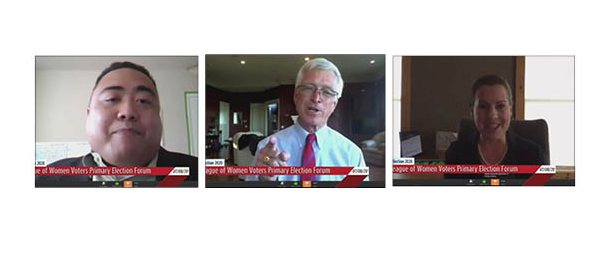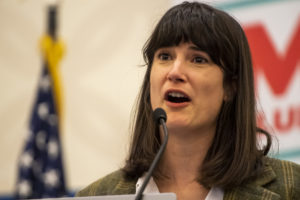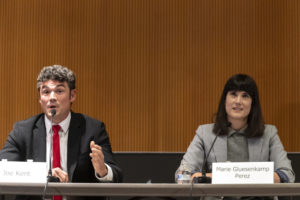A recent Clark County League of Women Voters forum highlighted three candidates — including two from Camas — vying for a state senate seat in Washington’s 18th Legislative District.
Incumbent Sen. Ann Rivers, a Republican, joined challengers John Ley, also a Republican, and Democrat Rick Bell in the July 8 candidate forum to discuss issues related to affordable health care, policing, homelessness and climate change.
Bell, a small business owner with experience in health care information technology, and Ley, a recently retired Delta Airlines captain, both live in Camas.
Voters will decide in the Aug. 4 Primary and Special Election which two candidates will advance to the Nov. 3 General Election. In Washington primary elections, the top two vote-getting candidates move on to the general election, regardless of political party affiliation.
Following is a recap of the League of Women Voters candidate forum, available online at cvtv.org:




